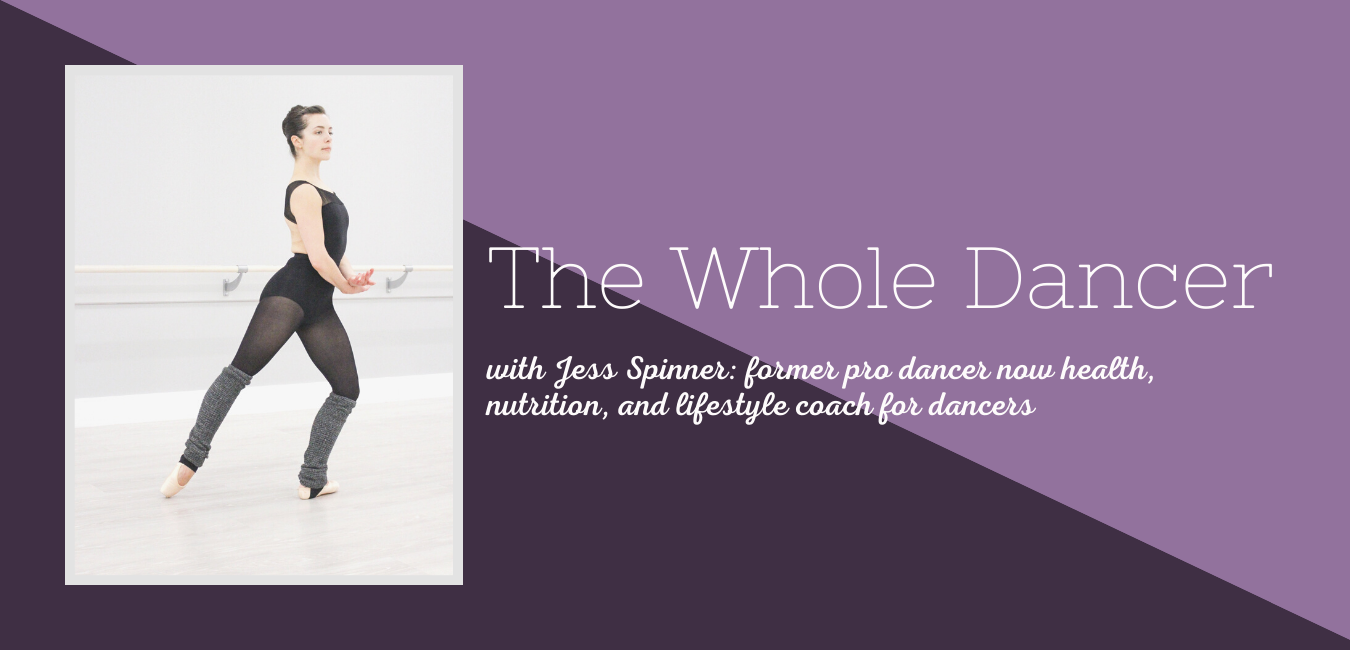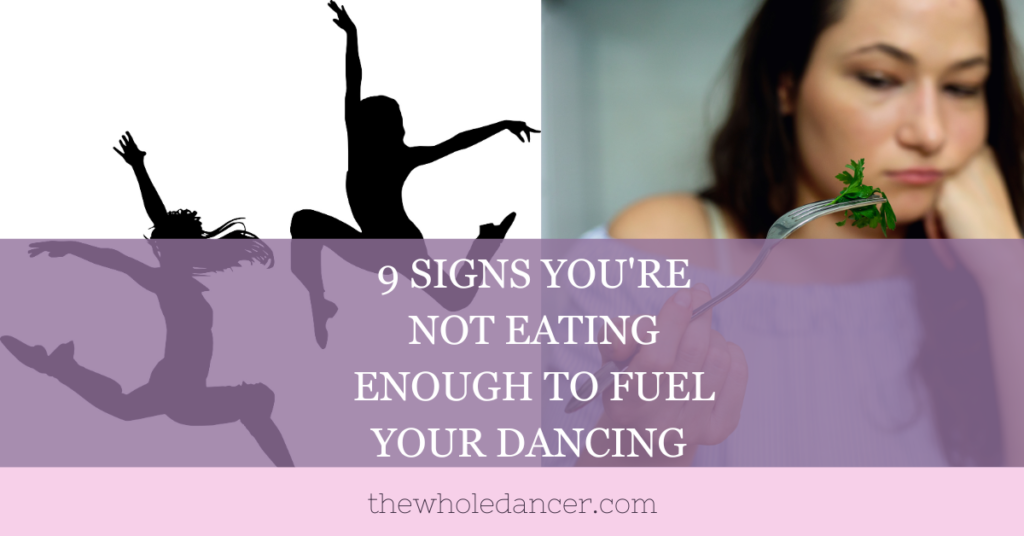This is such a common question, and in an environment where you’re surrounded by a lot of people who are undereating, it can be very hard to know. Am I eating enough?
A 2020 study indicated that over 50% of female dancers were in a state of low energy availability, putting them at risk for the clinical consequences of Relative Energy Deficiency in Sport (RED-S). The situation of low nutritional energy for dancing can cause issues for every system of the body.
Consequently, it will significantly impact your dance performance in relation to coordination, mental focus, your body’s ability to build strength, and to recover. Underfueling and potentially developing RED-S can increase likelihood of injury, bone loss, and hormonal imbalance.
The impacts of undereating and chronically underfueling are serious and can be long lasting.
9 signs you’re not eating enough.
- Period loss or amenorrhea could indicate that you’re not eating enough. Of course there are other potential causes of a missed period like pregnancy, diet changes, stress, or medications, but very often for dancers a missed period is a result of underfueling.
- Constant thirst. Eating enough food helps to balance electrolytes like sodium, potassium, and magnesium. If you’re not achieving adequate electrolyte intake, that can manifest as thirst.
- Feeling cold (most of the time). If you’re not eating enough, your body won’t have the energy to carry out thermogenesis — a process that helps the body produce heat. Adequate caloric intake will allow the body to carry out all necessary functions and keep you warm.
- You’re in a bad mood. Yup, when you don’t eat enough, you will likely be moody and irritable. More and more research shows a connection between mood and blood sugar. Your brain runs mostly on glucose, so it makes sense that ups and downs in blood sugar result in irritability, moodiness, anxiety, and worry.
- Brain fog and memory challenges are key signs that your body needs more food. Are you finding it hard to remember combinations in class or choreography in rehearsals? Eating a variety of foods, consistently, and prioritizing brain-boosting foods like B-vitamins, omega-3’s, folates, and antioxidants will only support your brain function.
- Dizziness or actually passing out are signs that you’re not adequately fueling your body. Without adequate food intake, your blood sugar drops, resulting in low blood pressure and feeling faint or dizzy.
- Low energy. If you’re struggling to get through class or feeling super tired even after sleeping for 9+ hours, it’s a pretty clear sign you’re not eating enough. This is also incredibly common when people follow low carbohydrate eating plans. For optimal energy, you should be including starchy carbs throughout the day.
- Constipation. Bloating is a top concern for many dancers. When you don’t eat enough food, you’re less likely to have regular bowel movements, which can lead to constipation. When your stomach isn’t getting regular fuel, it can also get sluggish, leading to more bloating. Eating enough food and including lots of fiber rich-foods is the solution.
- Hair loss and brittle nails. The strength of your hair and nails provide pretty clear indications of health. If your body isn’t getting enough fuel, it will prioritize providing adequate nutrients to the organs that keep you alive. Your brain, heart, and lungs take priority over your hair, skin, and nails. It’s normal to lose some hair each day, but if you notice an increase in hair loss and your nails are breaking more easily, those are signs you’re not eating enough.
Food relationship and adequate fuel.
If you identify even one of those signs in your own food or dance experience, don’t ignore it. Find support and start to make the necessary adjustments so you can fuel with intention. When you’re feeling happy and positive about your food choices, you will eat enough, enjoy your food experience, and fuel confidently. Even performance-focused, nutrient-dense meals should be delicious.
A dancer’s performance-focused eating plan includes a lot of food. If you’re not eating consistently, that’s a great place to start. Begin your day with a hearty breakfast that includes protein, carbohydrates, and fat. You might have some oatmeal topped with nuts, seeds, and fruit or some eggs with toast, avocado, and greens. Whatever meals you choose, make sure you’re enjoying the tastes, flavors, and preparation.
If you’re struggling to feel balanced in your approach to food and your body, sign up for the free workshop on Your Food Relationship for Dance.


Pingback:Evidence that you can trust your body. - The Whole Dancer